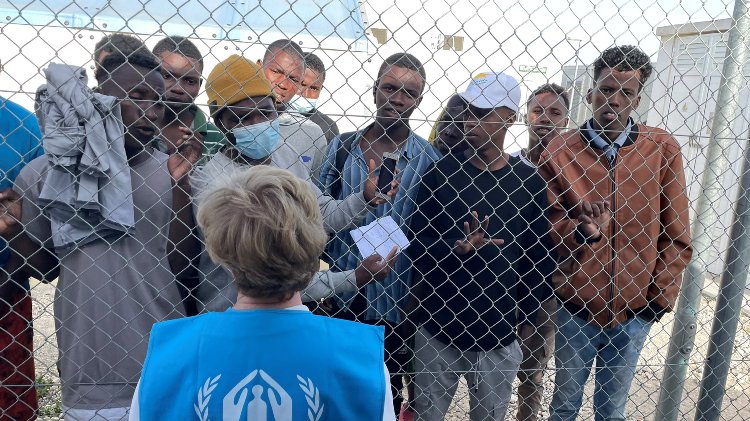UN Experts Alarmed by Forced Labour of Migrant Workers on Cyprus Citrus Farm
According to information received by UN experts, more than 600 migrant workers may have been subjected to forced labour conditions orchestrated by Cypfruvex, a state-owned citrus company.

United Nations human rights experts have raised urgent concerns over reports of large-scale trafficking and forced labour involving hundreds of migrant workers employed on a citrus farm in Morphou, northern Cyprus. The case, described as systematic exploitation, highlights grave human rights violations and a lack of accountability by local authorities.
Large-Scale Exploitation of Migrant Workers
According to information received by UN experts, more than 600 migrant workers may have been subjected to forced labour conditions orchestrated by Cypfruvex, a state-owned citrus company. Recruitment agents in the workers’ home countries allegedly acted on behalf of the company, luring them with false promises of legitimate jobs in the Republic of Cyprus or other parts of the European Union.
Instead, the workers were transported to the Turkish-controlled northern part of Cyprus, where they were coerced into harsh working conditions. Reports detail that company officials confiscated their passports, confined them in labour camps, and forced them to work 12–13 hours daily, seven days a week, often without pay and under inhumane circumstances.
Threats, Violence, and Legal Manipulation
UN experts reported that the workers faced intimidation, threats, and violence from intermediaries linked to the company. These agents allegedly carried out direct physical abuse, while company officials made public threats to suppress complaints.
To deepen their vulnerability, work permits were deliberately allowed to expire, pushing the workers into irregular status. This left them at constant risk of deportation and without legal protections—despite the fact that their situation arose from deliberate employer misconduct.
“This is not an isolated incident but part of a systematic practice in the region,” the experts said, underlining the pattern of exploitation faced by migrant labourers.
Lack of Accountability from Authorities
Despite complaints lodged by the workers, UN experts noted a serious lack of investigations or accountability by Turkish Cypriot authorities. Victims were reportedly denied access to legal aid, preventing their cases from moving forward.
“We are particularly concerned at the lack of assistance to victims, apart from support provided through civil society,” the experts explained. “Lack of action by authorities is leading to impunity for grave human rights violations and serious crimes.”
Call for Justice and Corporate Accountability
The experts stressed that the allegations amount to trafficking in persons for forced labour, a serious international crime. They urged local authorities to conduct thorough investigations, ensure remedies and compensation for victims, and prosecute those responsible.
They also emphasised the responsibility of corporations and state-linked enterprises under the UN Guiding Principles on Business and Human Rights. “Business enterprises and their subsidiaries or partners must be held accountable for unlawful activities allegedly carried out in the northern part of the island,” the experts said.
Next Steps
The UN experts confirmed they are in contact with both the authorities in northern Cyprus and representatives of Cypfruvex. Civil society organisations have been the primary source of support for victims, but without meaningful government action, concerns remain that exploitation could continue unchecked.
The case shines a spotlight on the vulnerabilities faced by migrant workers globally, particularly in regions where political disputes and fragmented governance allow labour exploitation to thrive with little oversight.










